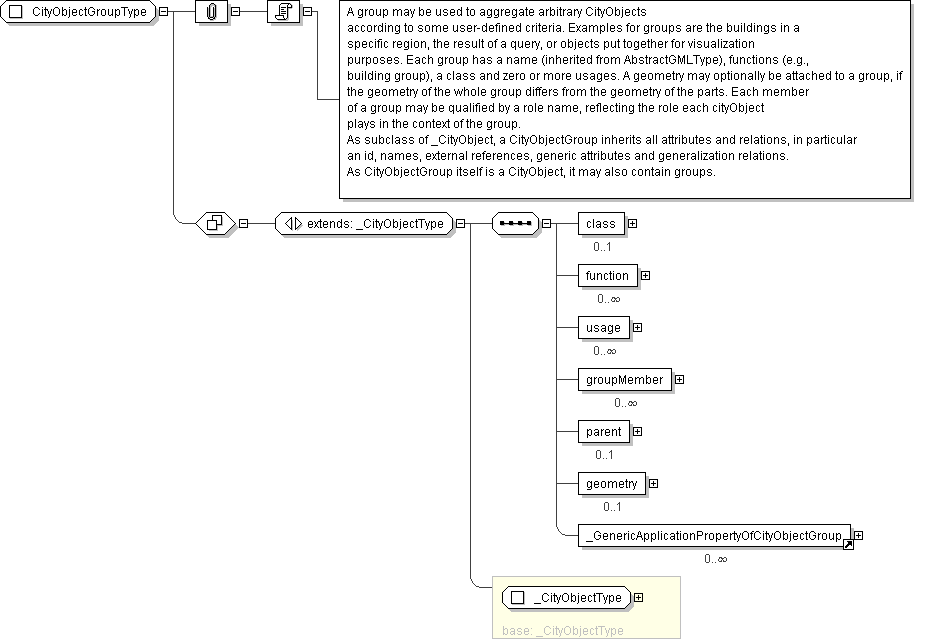Diagram

| Super-types: | gml:AbstractFeatureType < _CityObjectType (by extension) < CityObjectGroupType (by extension) |
|---|---|
| Sub-types: | None |
| Name | CityObjectGroupType |
|---|---|
| Used by (from the same schema document) | Element CityObjectGroup |
| Abstract | no |
| Documentation | A group may be used to aggregate arbitrary CityObjects according to some user-defined criteria. Examples for groups are the buildings in a specific region, the result of a query, or objects put together for visualization purposes. Each group has a name (inherited from AbstractGMLType), functions (e.g., building group), a class and zero or more usages. A geometry may optionally be attached to a group, if the geometry of the whole group differs from the geometry of the parts. Each member of a group may be qualified by a role name, reflecting the role each cityObject plays in the context of the group. As subclass of _CityObject, a CityObjectGroup inherits all attributes and relations, in particular an id, names, external references, generic attributes and generalization relations. As CityObjectGroup itself is a CityObject, it may also contain groups. |
'Multiple names may be provided. These will often be distinguished by being assigned by different authorities, as indicated by the value of the codeSpace attribute. In an instance document there will usually only be one name per authority.'
